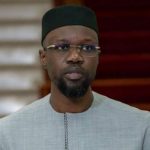‘Dialogue, Not a Monologue’: Liberia, Africa Youths Yearning to be Heard
By: Robtel Neajai Pailey, New Narratives Fellow
I watched in amazement as stately Cameroonian 30-something, Mamadou Kwidjim Toure, founder of pan-African youth movement “Africa 2.0”, slipped former Nigerian president Olusegun Obasanjo a note on the elevated stage. Overhead, two wide-screen projectors magnified this exchange to an audience of over 200 at the recent Mo Ibrahim Foundation Governance weekend in Dakar, Senegal.
Obasanjo looked non-plussed. He finished his statement, opened the slip of paper, and said to the audience gruffly, “He has written me a note saying this is a dialogue, not a monologue. I know that.” The audience laughed nervously. The former general defiantly continued his musings for another five minutes. I shifted in my seat uncomfortably, expecting a head-on collision between young and old.
Obasanjo had been asked to moderate this inter-generational dialogue for the Forum which, for the first time, was focused on Africa’s youth. (During the Forum, a US$5 million prize—among other perks—is supposed to be given to an African leader who governs well and leaves power at the end of term. So far, only three former heads of state have been deemed worthy in the prize’s six-year history.)
According to statistics generated by the Foundation, African youth are better educated yet less employed than their parents. Though the average African is 20, the median age of African leaders is 62. It seems to me that while experience and old age are a pre-requisite for assuming the mantle of leadership in Africa, youthfulness and innovation are prized in other parts of the world. Africa is experiencing a generational clash, in which young and old seem to be in perpetual conflict. The exchange between Obasanjo and Toure was emblematic of that tussle.
The same holds true for Liberia, although admittedly the gap between young and old has slightly narrowed. In Liberia, where 73 percent of the population is under age 35 according to LISGIS and the Ministry of Youth and Sports, young people are still fighting to be heard. Liberia is one of the only countries I know of where the oldest in society are more educated than their younger counterparts. Liberia is one of the only countries I know of where true ‘generational change’ never really sprouted. Cultural norms, which state that a young person should be seen and not heard, muzzle true dialogue and development.
Youth in North Africa and the Middle East have been the drivers of revolutions the past two years. Here in Liberia, leaders sometimes take them for granted at great risk. However, young people in Liberia are not simply entitled to a seat at the decision-making table. They must listen, learn, and earn their right to make meaningful contributions to the country’s transformation. My hope is that in 2013, young and old in Liberia will learn these simple tenets to turn monologues into dialogues:
Understand the issues well by doing your research before attempting to challenge the status quo. Too often, youth of Liberia—and Africa—allow politicians (old and young) to manipulate them into advocating a particular cause without first understanding what that cause is, and how it might affect them.
If you have a bone to pick with any current leadership—whether in academia, the arts, business, or politics— protesting without a license, looting and burning might get you noticed, but it won’t offer a sustainable solution. Find allies who understand and support your cause at all levels within society, and use established institutions to get attention—the media, schools, churches, etc.
Power concedes nothing without a struggle, so it’s better to command respect than to demand it. Get an education, however challenging this might be. Acquire some skills, or a trade that is needed in Liberia. Learn to speak and write a foreign language well. Productive young people are much more powerful when they have something relevant to contribute.
Young people are like sponges, so teach your children to value hard work, honesty, respect and dignity. Raise your children to be seen and heard, for all the right reasons. Young people can become a nuisance if they are not given the right tools to function properly in society. If you are in a position of power, leadership or influence, take a younger person who shows potential under your wing, mentor them, and release them into the world. Their success will immortalize you.
Step away from power when it is time to do so, and usher in a new generation of leaders. Despite the paranoia of letting go, retirement does not mean disappearing into oblivion. Offer up your services as a wise, and respected elder, and you will continue to be relevant in the eyes of those who can benefit from your perspective. Nelson Mandela is a classic example of this.
Age sometimes really is just a number. I have met just as many young people who are set in the ways of tradition as I have older people who are progressive in their thinking. Allies can be found across age-divides, so look for them.
Listen across generational divides. Despite the angst of some youth, they have something important to say. Despite the gray-hairs of some elders, they too have something important to say. Given that the stats in Liberia represent a continent-wide phenomenon about the supposed clash between young and old, it’s not all right to have a monologue when what is truly needed is a dialogue.
Born in Monrovia, Liberia, Robtel Neajai Pailey is an opinion fellow with New Narratives, a project supporting leading independent media in Africa. She is currently pursuing a doctorate in Development Studies at the University of London’s School of Oriental and African Studies (SOAS), as a Mo Ibrahim Foundation Ph.D. Scholar. She can be reached at robtel@newnarratives.org. Pailey originally wrote this Piece in the Frontpage Africa





